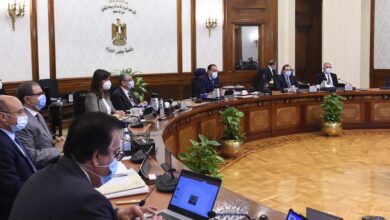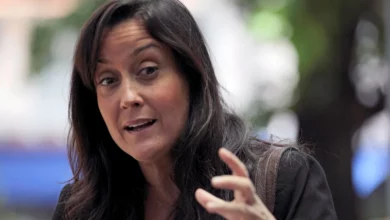Last Tuesday, an unusual meeting took place at the National Security Council (NSC), the body that advises US President Barack Obama on national security policy and foreign affairs. It was unusual because NSC Middle East grandees such as Dan Shapiro (who coordinates White House policy on the region), Dennis Ross (a special advisor to Obama on the Middle East peace process and Iran) and Samantha Powers (Obama’s human rights advisor)–as well as smattering of lesser White House figures–decided, on their own initiative, to focus on a topic the administration had relegated to a secondary status: Egypt and its future.
The meeting took place with the Working Group for Egypt, an independent coalition of academics, former officials, think-tankers and policy activists from across the American political spectrum who are in agreement over two things: Egypt is not going in the right direction, and the White House should be doing more about it. That the meeting took place at all is an indication that things may be changing. Cynics–and I am usually among them–will say that, with a Republican midterm victory that promises to stiffen a US domestic deadlock, policies on Afghanistan and Iraq that are hostage to circumstances and a Middle East peace process that is clearly reaching a dead end, the administration needs a new policy track in the Middle East on which it can achieve some success in 2011.
This view of things underestimates the seriousness with which the US views Egypt’s current situation. Egypt is a critical ally for Washington but not just to advance the Middle East peace process, as many assume. America’s core interests in Egypt are counter-terrorism, intelligence sharing, and diplomatic coordination on a whole host of regional issues besides the Israeli-Palestinian question. These interests revolve mostly around Egypt’s relationship, not with the White House or the State Department, but with the Pentagon and the CIA. These institutions (and their Egyptian counterparts), operating almost always behind the scenes, see Egypt as an essential partner for the projection of American power in the region.
By deliberately adopting a policy of ambiguity about who might succeed him, Egyptian President Hosni Mubarak has made many people nervous, inside and outside of Egypt–often to the point of paralysis. Rarely has a country so central to regional politics projected such uncertainty over who will rule it, and how the selection process to choose that person (besides sham elections) will work. This is the great question raised in every embassy in Cairo these days, and in the capitals of those Western countries that have a significant relationship with Egypt. For a country like the United States, a global power whose foreign and military policy center has been the Middle East since the end of the Cold War, it is a crucial question.
There is no reason to believe that, after Mubarak, Egypt will turn Islamist or fall into chaos. Its core institutions–the military, security and intelligence services–are strong, and there is no political force outside the regime that is presently positioned to make a claim for leadership. So the question for American policymakers is how to keep the regime from turning against them, but also sending the right signals about what happens next.
Many simply don’t believe the US government cares about whether Egypt is democratic or not. Considering how quickly the Bush administration, never mind its successor, abandoned democracy promotion back in 2006, there are good reasons to be skeptical. But to stress this point too much is also to misread the US position: the United States wants stability first and foremost, but it also would like to see some kind of reform process in place in Egypt, because it believes without reform the current situation is inevitably unstable on the long run. This is particularly true for a democratic White House many of whose principal officials see a relationship between stability, good governance and development. The first may trump all else, but it does not mean that no thought is not given to the rest. That is why the United States has invested so much money in development since 1975, bailed out the Egyptian government multiple times, and continues to make statements about human rights issues that so infuriate the Minister of Foreign Affairs.
Right now, and especially after this month’s parliamentary elections that already appear set to be as fraud-ridden as every recent election, the United States has an opportunity to demonstrate whether it will take a different tack on Egypt then it has done so far. People will be watching for signals from Washington, and following how Egypt responds. The recent NSC meeting has already gotten a response: an op-ed in the Washington Post by Minister of Finance Youssef Boutros-Ghali–probably the most respected Egyptian official in Washington–defending the government’s reform record. Boutros-Ghali says the only alternative to the regime is Muslim fundamentalism and extremism. This view of things has a certain appeal in Washington, which is why he–particularly as a Christian–deployed it. Foreign Minister Ahmad Aboul Gheit has also decided to visit Washington this week.
The question will now be whether this old chestnut of an excuse for lack of democratization will work to silence an American administration at a crucial juncture, or whether Washington will join the many Egyptians who no longer believe this false binary choice to be true. We’ll see after the elections.
Issandr El Amrani is a writer on Middle Eastern affairs. He blogs at www.arabist.net. His column appears every Tuesday.




